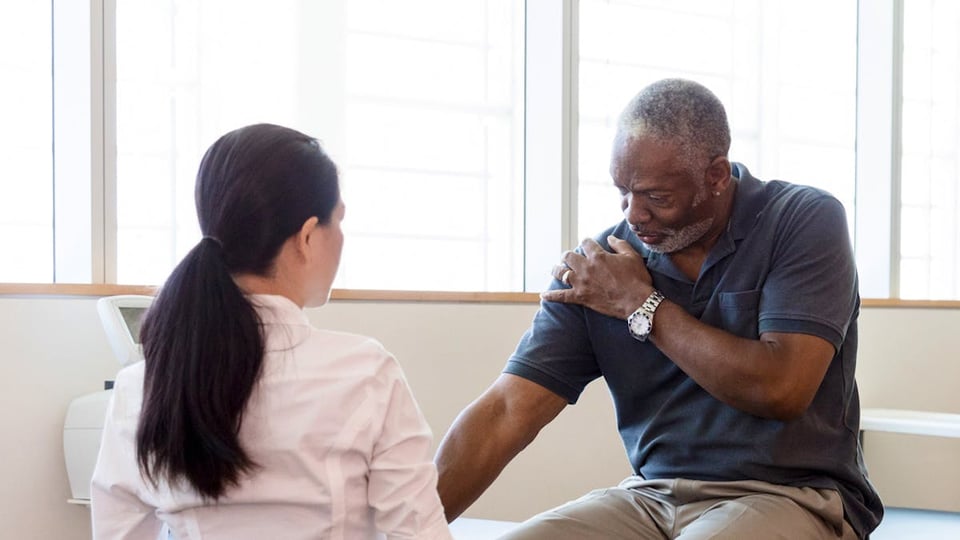Evaluation of the Shoulder Complex
S. Chris Owens PT, ScD, OCS, CSCS, FAAOMPT
Includes all course content in digital format
Prerequisites Required
Description
The prevalence of shoulder pain in the general population is estimated as being between 15 and 20%. It is the second most common reason for individuals with musculoskeletal seeking treatment from general medical practitioners. Clinicians are faced with the challenge of performing a timely, comprehensive examination that provides the necessary information for the development of a clear plan of care for patients and clients. Once the examination is complete, clinicians must choose the best evidence-based interventions.
This course will assist clinicians with prioritizing examination tests and measures by presenting recent diagnosis related research for the shoulder complex. A case-based clinical reasoning approach will provide participants with the ability to clearly communicate findings with patients and colleagues. Clinicians with all levels of experience and expertise will be able to effectively categorize patients with shoulder dysfunction into clear treatment-based categories to facilitate effective treatment.
Highlights
- Provide a 15-minute systematic examination that includes differential diagnosis for the shoulder complex
- Rapid examination processes for assigning patients to effective treatment-based categories
- Acquire the most reliable and relevant clinical information with minimal tests and measures and special tests
- Valid systematic approaches to interpreting complex clinical problems
- Communication tools to effectively collaborate with all treatment team members, including referral sources
Learning Objectives
- Differentiate the relevant regional anatomical contributions to normal shoulder complex function.
- Categorize all relevant patient history and examination information as a means of making appropriate patient plan of care decisions.
- Implement education to patients appropriately based on examination findings.
- Apply appropriate clinical interventions through tests and measures including selected special tests.
Course Content
| Evaluation of the Shoulder Complex | SCORM Package | ||
| Next Steps | Module |
- The Shoulder Complex
- Anatomical considerations for the shoulder complex
- Clinical categories of shoulder pain (impingement, "stiff shoulder", overhead athlete)
- Examination of the Shoulder Complex
- Patient History
- Review of medical history/patient profile
- Presenting complaints/functional limitations
- Patient Examination - Evidence-based considerations
- Interpretation of examination findings (evaluation, prognosis, interventions)
Chris Owens PT, ScD, OCS, CSCS, FAAOMPT has over 20 years experience treating patients with musculoskeletal disorders. Dr. Owens was recognized in 1998 by the National Strength and Conditioning Association as a certified strength and conditioning specialist. In 2006, he became a board-certified clinical specialist in orthopedics, and was accepted as fellow of the American Academy of Orthopedic Manual Physical Therapists.
Dr. Owens has published many peer-review articles and presented his distinguished research at conferences in orthopedic manual physical therapy. He has offered continuing education instruction nationally for physical therapists in orthopedic manual physical therapy for 15 years. Dr. Owens has taught musculoskeletal management at the Hampton University Doctor of Physical Therapy Program. He obtained his Bachelor of Science in Physical Therapy from the University of Connecticut and his Doctorate of Science from Texas Tech University Health Science Center.
DISCLOSURES
FINANCIAL: S. Chris Owens is compensated by Summit as an instructor.
NONFINANCIAL: S. Chris Owens has no non-financial relationships to disclose.
Click here to check accreditation for this course.